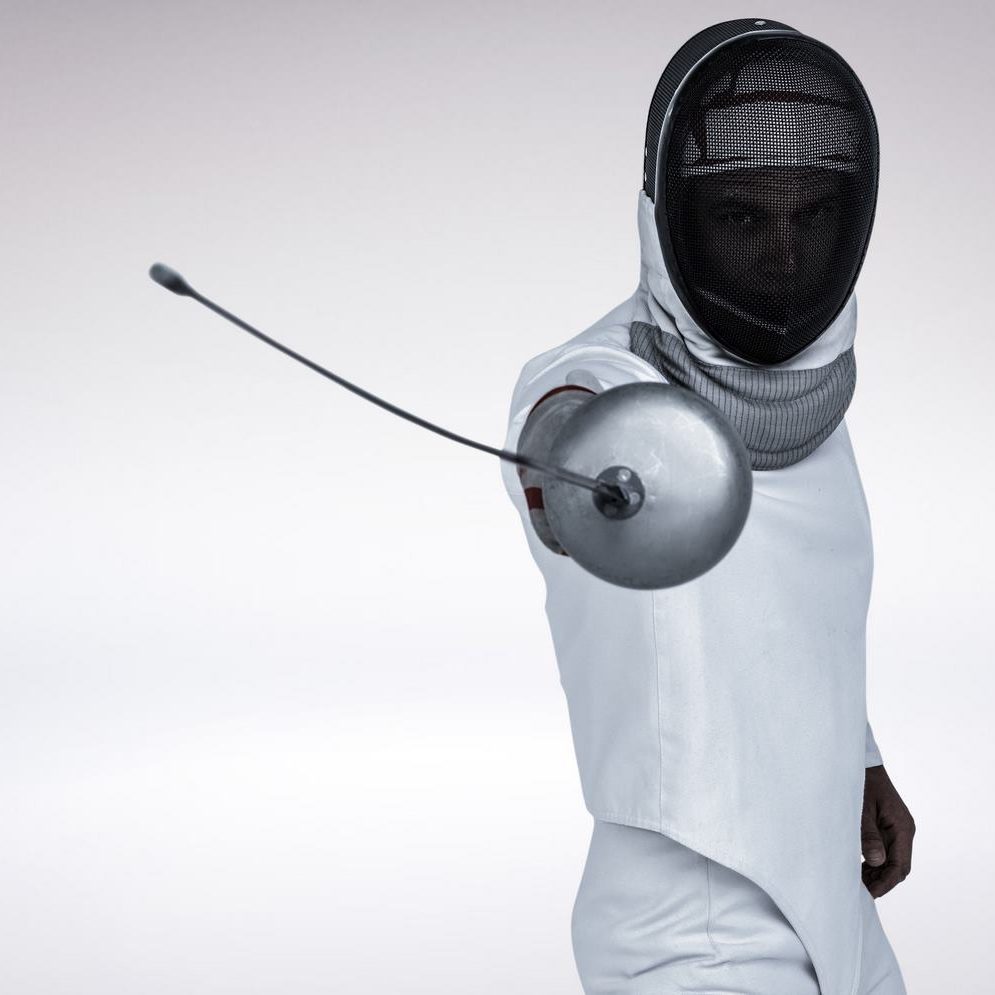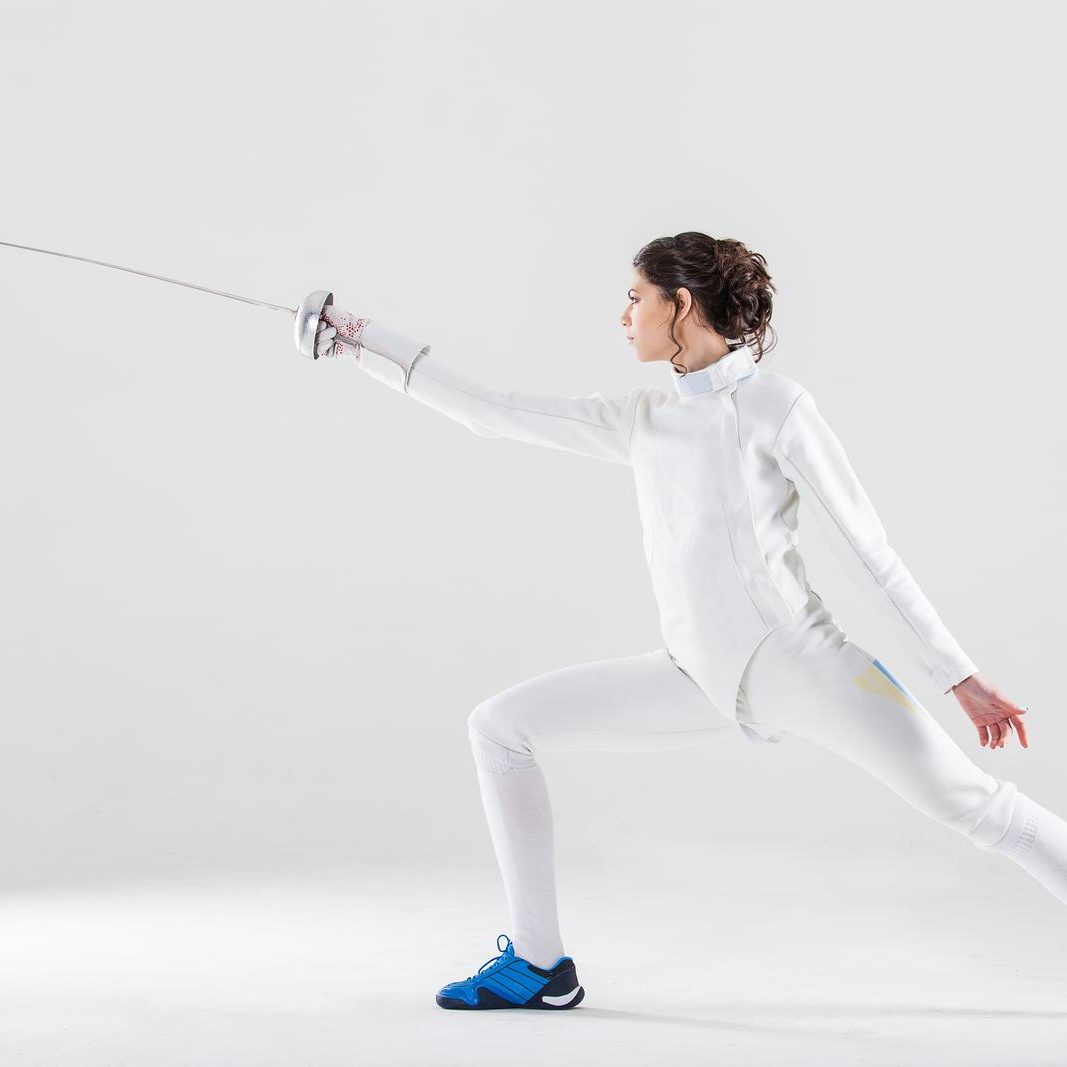Youth/School
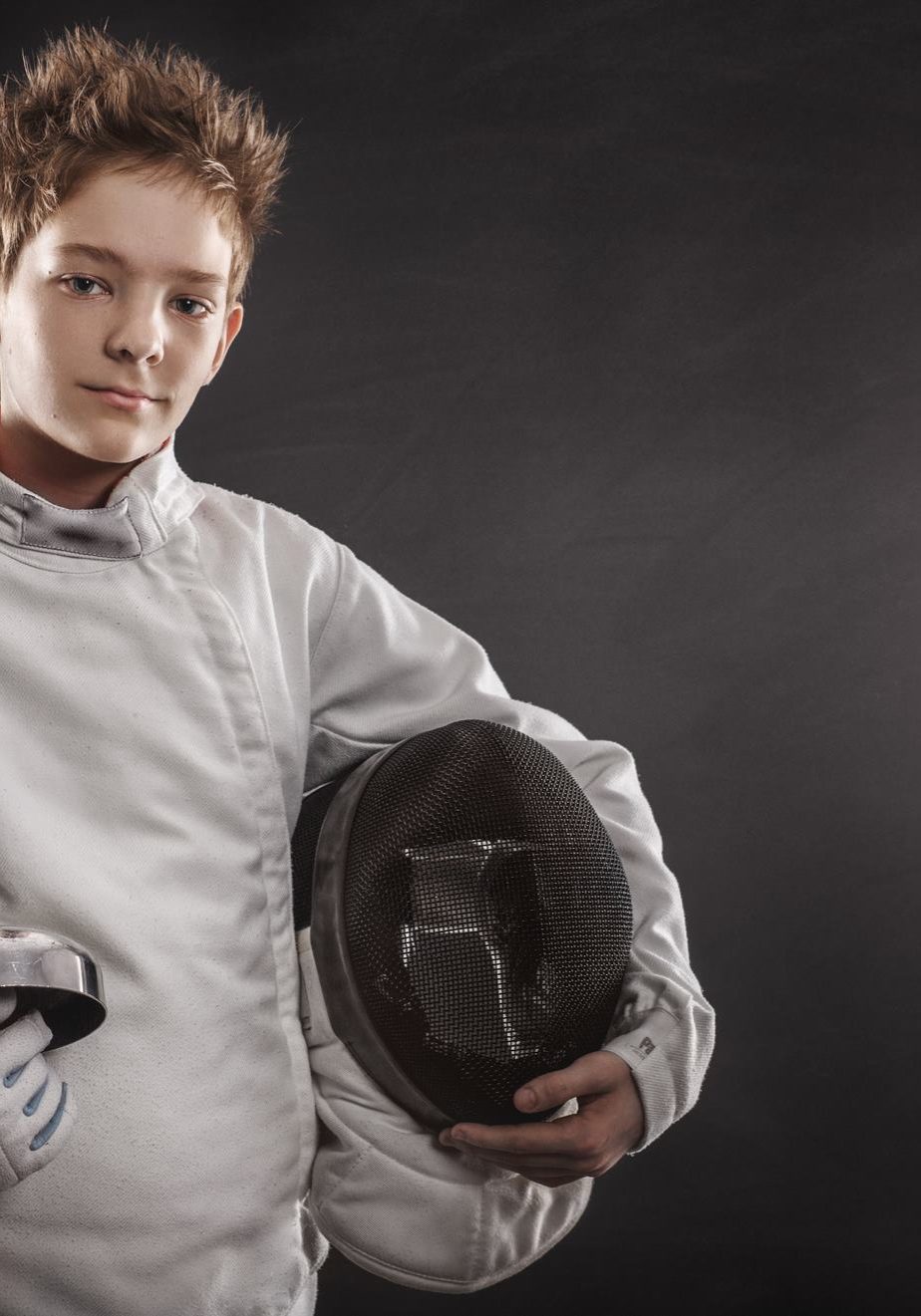
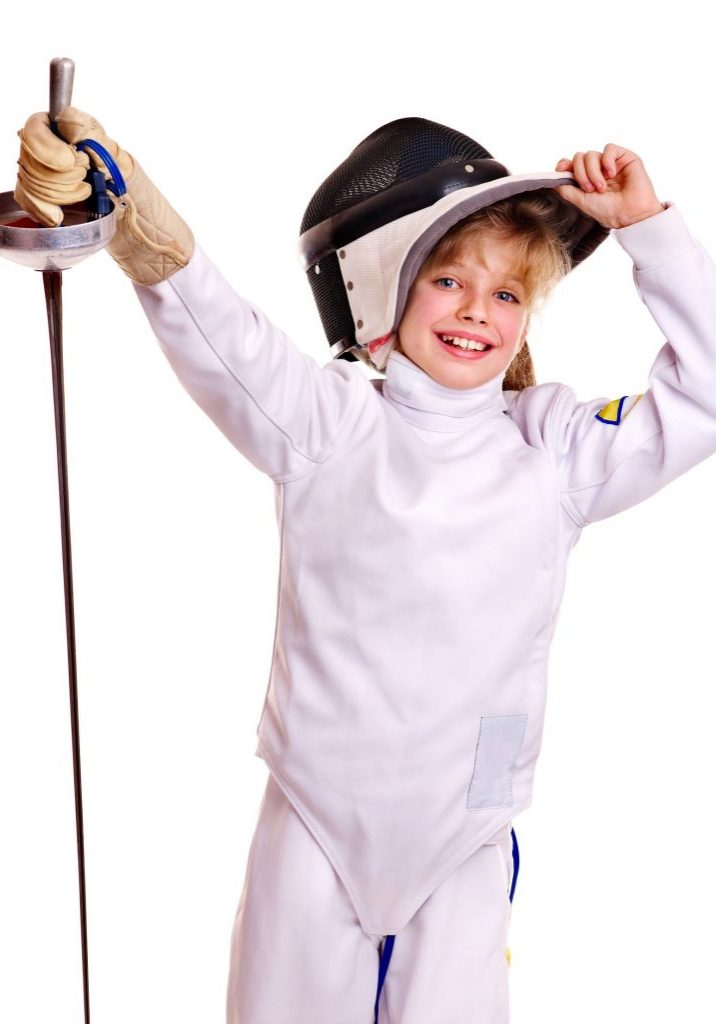
Youth Development / Elite Programme
Youth Elite Development ( Future Trial Blazers 2016 )
Future Trailblazers was created in 2016 as part of the Fencing Ireland’s Youth Programme.
Established to both develop the sport but also to create a future pipeline of fencers. It seeks to develop the skills and talents of young Irish fencers, with the aim of achieving international representation and success.
The objective of the Future Trailblazers is to:
Complement club training and further enhance fencers that show commitment and talent with the long term goal of representing Ireland in competitions appropriate to their age and skillset
Provide training in fencing skills, blade management, fitness, nutrition and competition psychology To represent one’s country should be seen as a privilege, rather than an automatic right.
Fencing Ireland understands that it is difficult for fencers and parents who are relatively new to the sport to be able to access dependable and sound advice about the best pathway to achieve success.
Fencing Ireland wants young fencers to maximise their potential, have positive experiences and stay in the sport, so that they will continue to develop to become successful senior fencers. It is expected that the best of them will seek international representation and win medals at World Cup events.
The objective of Fencing Ireland Elite Development for the fencer is:
provide young people with the best possible sporting experience
encourage life long and active participation in fencing
foster supportive environments for enjoyable participation in a variety of physical activities, through the development of skills and good sporting behaviour
encourage the allocation of appropriate and safe resources and facilities
ensure equal opportunities for all young people to participate in fencing
actively cater for talented young fencers
Demonstrate a consistent and coordinated approach to junior fencing in Ireland
Participation in Fencing is characterised by:
- a safe, healthy and challenging sporting environment
- a level of competition commensurate with age, maturity and ability
- a broad development program preceding specialization in any particular skill
- the recognition of participation, development and improvement
- the influence of role models who are good ambassadors for fencing and who practice appropriate behaviour in the view of junior fencers
- an emphasis on enjoyment of the sport
Trailblazer Selection
Entry to Future Trailblazers is by invitation only following an assessment based on nomination by the prospective candidate’s coach; any fencer between the ages of 8 and 20 can be selected based on prerequisite training outcomes and competition results within the 32 counties.
Future Trailblazers will be selected on an annual basis and membership reviewed mid-season. Assessments will take place twice yearly, in September and January. No canvassing on behalf of any applicant is permitted.
Selection criteria include:-
Completion of Fencing Certifications
Competition results within the 32 counties
Written and signed nomination by club coach with reasoning behind nomination and open to query by the Fencing Ireland selection committee
Candidates can only be nominated twice for assessment in the fencing year (Sept and Jan)
Fencing assessment is by the coach selection team (not including in the fencer’s own club coach)
Fencers must have an Irish Fencing Licence
Earning that privilege requires considerable hard work and commitment on the part of the athlete as well as from those supporting the athlete.
Fencers representing Ireland will be proposed to the Fencing Ireland selectors by the Fencing Ireland Junior Development committee only.
FOR MORE INFORMATION CONTACT YOUR CLUB COACH
Schools
Get your school involved
We have an active, engaging Primary and Secondary schools programme that is growing rapidly. Participation has risen over the past 5 years, due to the rising statistics regarding the deterioration of our children’s physical and mental health. We offer an opportunity for every child in your school to exercise.
Our Primary School Programmes
- Taster Session:
A one off session for a class group where they will learn the basics of fencing. Time permitting, this would include:
- The en garde position,
- Basic footwork,
- How to attack and defend,
- Fencing safety and etiquette.
The session will conclude with a chance for the group to fence some matches against their classmates. We usually run these sessions for 45-60 minutes accommodating up to 36 children but can adapt to your needs and/or availability.
Cost: - FREE
- Young Swashbucklers Course:
A five week long course with weekly 45 minute sessions during which a group of children will get to grips both with the basic technical elements of fencing and their tactical application. As well as covering all the technical elements set out for the Taster Session, our aim here is, from the outset, to get your children to engage with the sport as a tactical game - a game of distance and traps.
At the end of the course, each student will receive a certificate of completion declaring them a Fencing Ireland/Trinity Sport Young Swashbuckler!
Cost: - FREE
Secondary Schools Programme
- First Year Courses
A beginner’s course on fencing in the foil discipline provides participants with all the skills required to start competitive fencing and is delivered through weekly lessons over a term. A double class is required to allow time for warm up, skills instruction and supervised bouts.
this would include:
- The en garde position
- Basic footwork
- How to attack and defend
- Fencing safety and etiquette
- Transition Year Courses
Fencing is a natural fit for TY and encouraging sporting diversity for this age group is critical for keeping children active and involved in sport.
We provide lessons to fit your class sizes and timetable. Students are taught a series of skills that develop their fencing abilities through a mix of footwork and blade work. Sparring is an essential element and students will get to compete with one another from the very first lesson.
Our Transition year programme also meets many of the objectives of Gaisce Awards:
- Learning a new Skill
- Getting Active
- Meeting New Friends and having an Adventure
We teach using steel foils and recommend 10 hours of tuition which culminates in an electric competition (the same equipment used in the Olympics). Lessons can be designed from 1 to 2 hours in length and shorter courses are also possible. Ideally a local match with a nearby school will also be scheduled
For more on any of the above please contact Fencing Ireland – dfoley@irishfencing.net
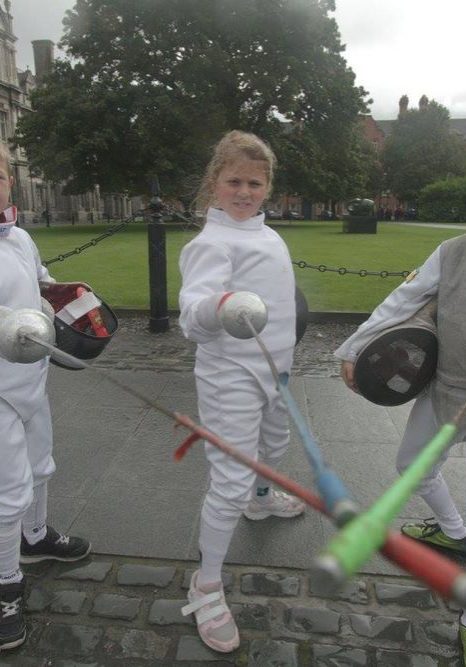
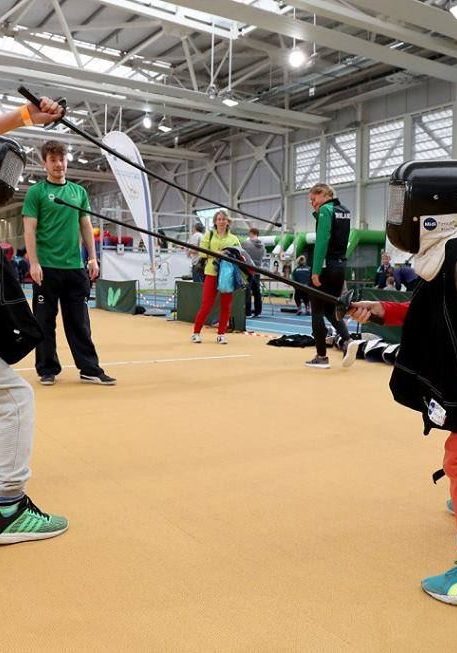
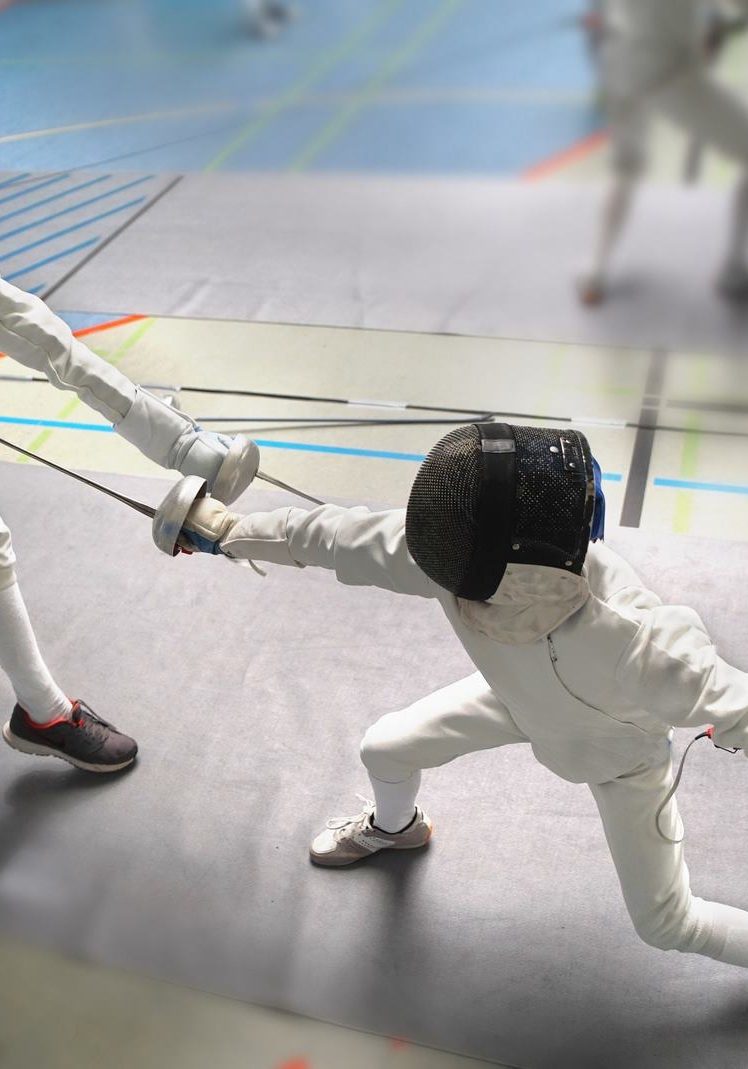
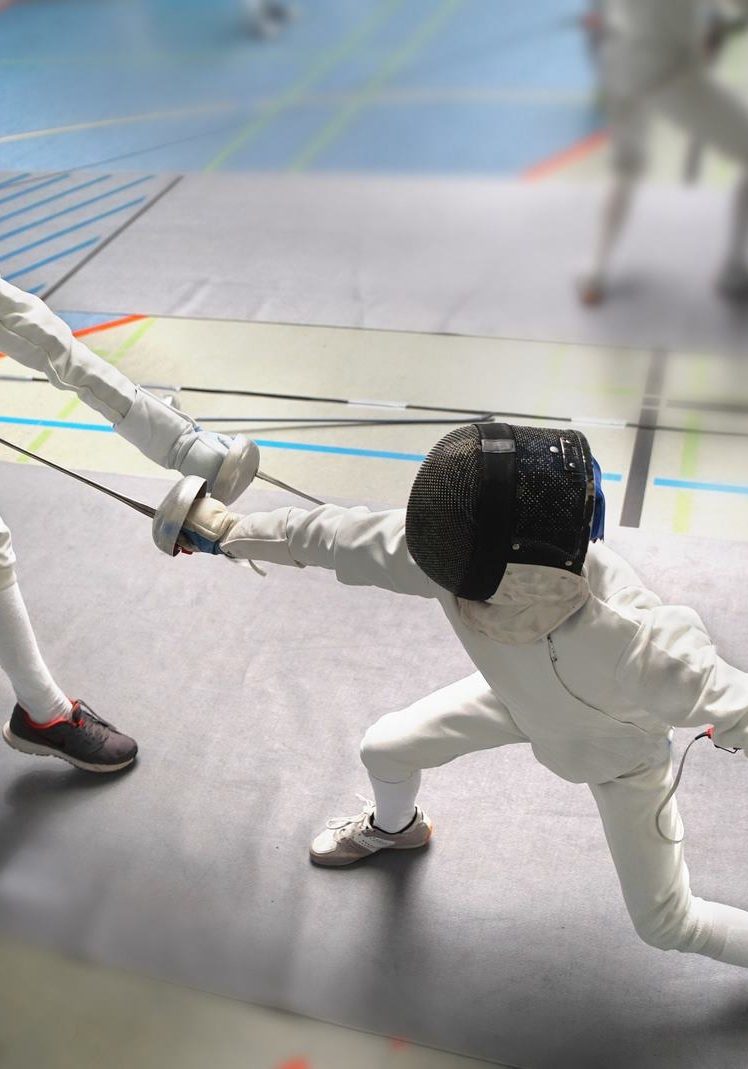
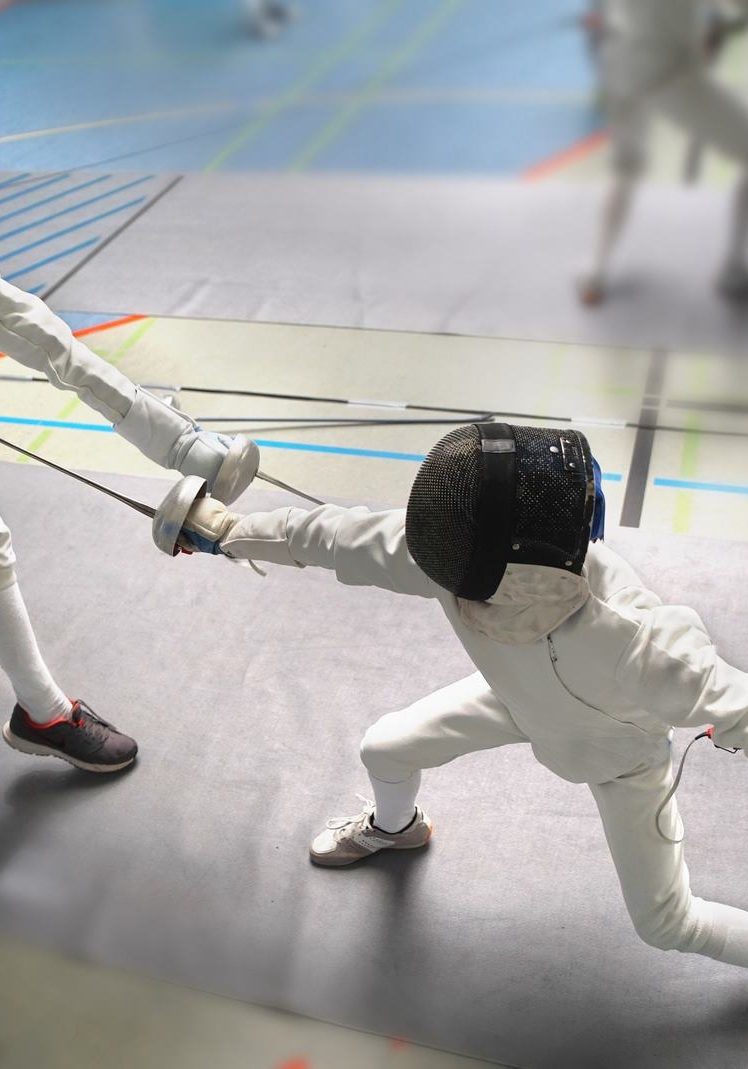
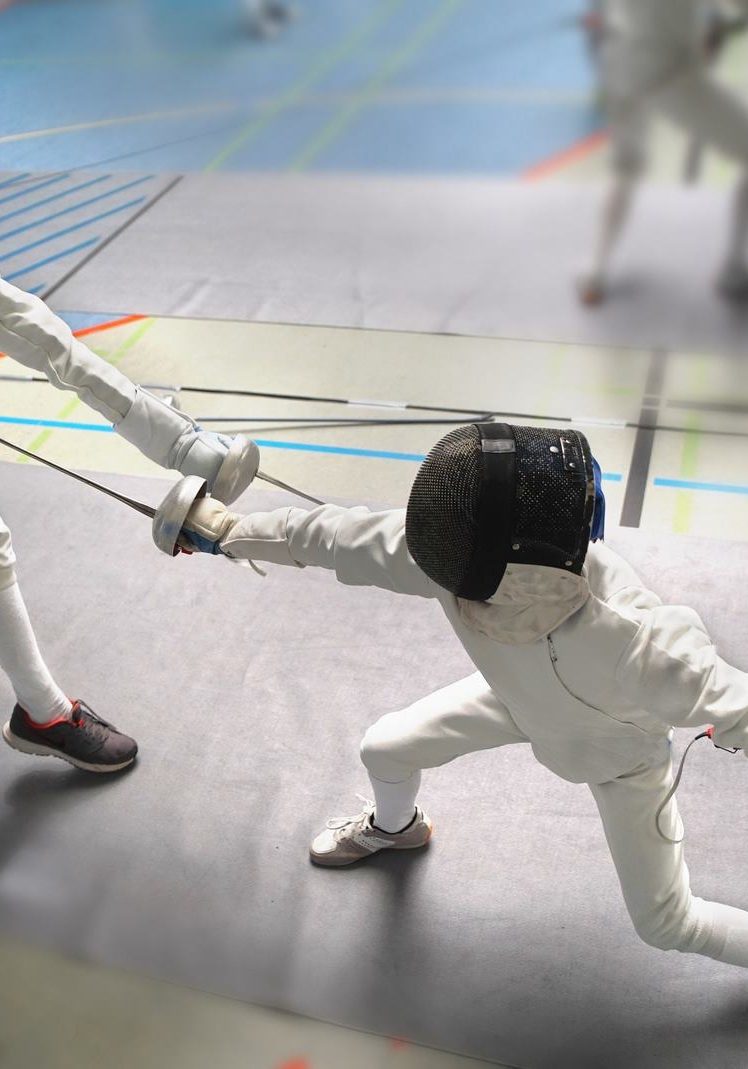
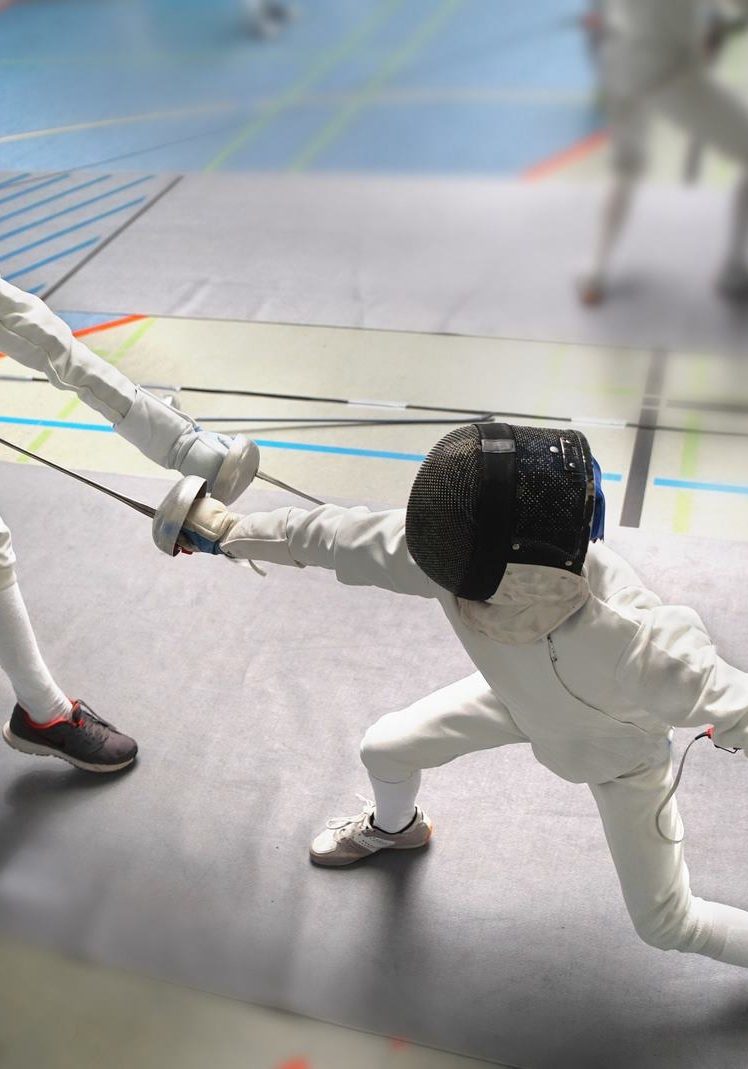
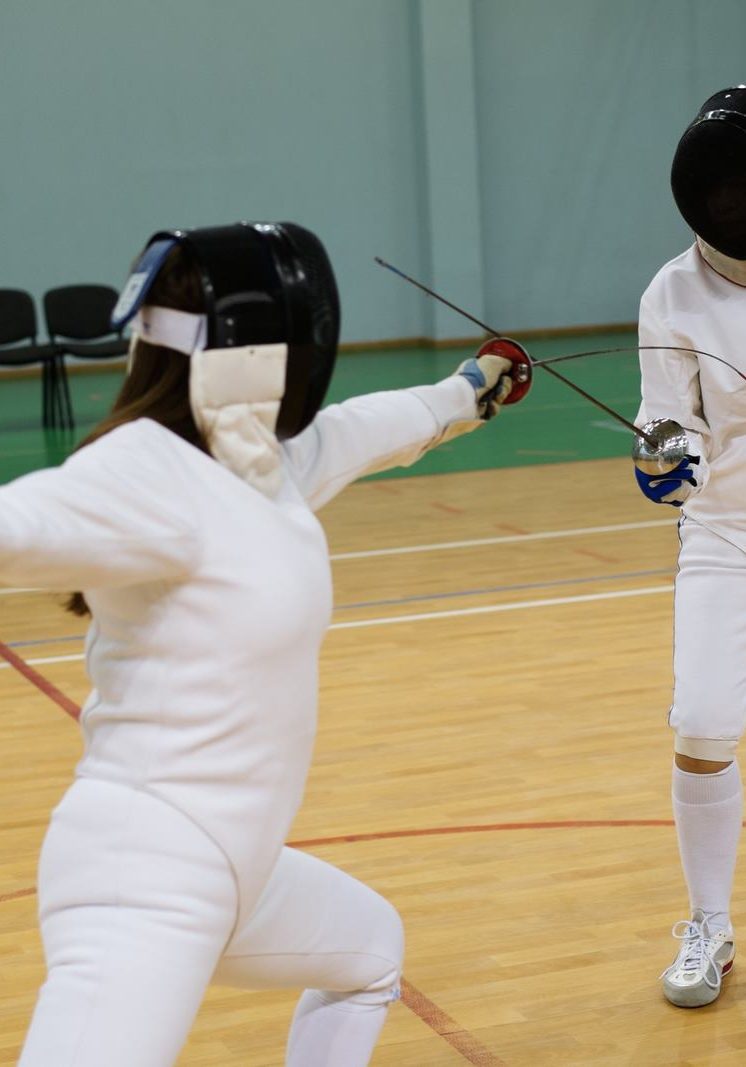
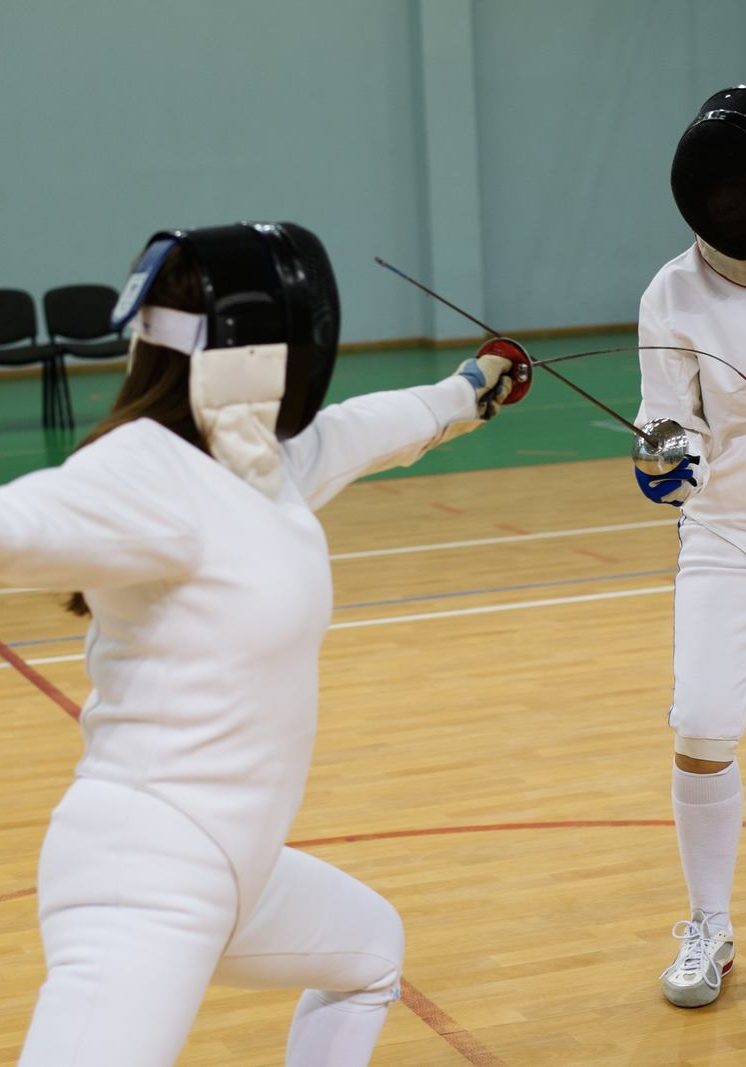
Interschool's fencing programme
THE IRISH INTERSCHOOL FENCING PROGRAMME
“Schools provide the next generation of Irish fencers and the Interschool Fencing Programme is designed to deliver fencing to new schools, giving pupils a grounding in the discipline of fencing through quality coaching and interschool collaboration.”
Philip Lee
Fencing Ireland
Teaching fencing from an early age offers many benefits to both the student and the school.. Increasing sporting diversity within Irish schools will improve sports participation and help promote a lifelong involvement in sport and physical activity by our school children. Other benefits for schools who participate in our Inter School Fencing Programme are a new discipline with a range of physical and mental wellbeing benefits, which help keep schools participation in the Junior Cycle Wellbeing programme ( PDF INCLUDED). School are also providing a sporting outlet for their students who do not fit in with the traditional team sports,
The Interschool fencing programme fosters collaboration and competition between schools a key event in the calendar is the annual Interschool Cup competition.
The competition is open to schools who provide fencing classes to their students during school hours and entry is through the fencing coach. The format of the competition is team based, with an emphasis on learning and building friendships that will support fencers as they compete on the national and hopefully international circuits in the future.
2020 Interschool Cup
Interested in getting your school fencing and competing against other schools? Contact Patrick Dight patrick@munsterblades.ie
Parent's Corner
We understand that you need to know more about our sport before allowing your child to participate.
It’s fun!
It inspires the imagination – it isn’t hard to imagine yourself as Luke Skywalker, Darth Vader, or Jack Sparrow.
It’s for everybody
Unlike most other sports, there is no ideal body type for a fencer. How can that be? Winning at fencing is a combination of many things: the mind of a chess player (watching for your opponent’s openings), the face of a poker player (bluffing your opponent), the flexibility of a gymnast (good for lunging), the hand-eye coordination of a calligrapher (Zorro would not be able to Z without it), and the endurance of a marathoner (to win a tournament). No child or adult, for that matter, is going to come into fencing with all of these different attributes.
Respect
Each bout that your child fences starts in the same way: with a respectful salute of the sword to the opponent, to the referee, and to the audience. When fencing without referees, fencers are taught to acknowledge their opponents touches. At the end of the bout, there is a required handshake among opponents. Winning and losing gracefully is not only encouraged, it is expected, along with maintaining respect for the fencers and the referees.
Click here for our https://irishfencing.net/wp-content/uploads/2017/12/Code-of-Conduct-for-Young-Fencers.pdf
Safety
Don’t worry, the swords aren’t sharp. And the kids aren’t really trying to stab each other. Fencers score points and win matches when the blunt tip of their sword merely touches their opponent. They also wear plenty of protective clothing- cool mesh masks and padded white vests that make them look like something out of a Star Wars movie.
Age
The very best age for children to start fencing is somewhere between 7 and 10 years old. However, in a sport that sees athletes win Olympic medals and World Championships into their late thirties, it is possible to reach a very high standard beginning as a teenager or even at college.
And it’s important parents set the right tone: https://irishfencing.net/wp-content/uploads/2017/12/Code-of-Conduct-for-Parents.pdf
Please feel free to contact us or your club with any specific questions you may have
You can read our https://irishfencing.net/wp-content/uploads/2018/05/Child-Safeguarding-Statement-March-2018.pdf
We do have a https://irishfencing.net/wp-content/uploads/2017/12/Child-Protection-Policy.pdf
All involved in coaching, volunteering are subject to our https://irishfencing.net/wp-content/uploads/2017/12/Fencing-Ireland-Vetting-Policy.pdf
Our https://irishfencing.net/wp-content/uploads/2017/12/Code-of-Conduct-for-Coaches.pdf
There is also a policy covering https://irishfencing.net/wp-content/uploads/2017/12/Fencing-Ireland-Photography-Policy.pdf of youth events.
